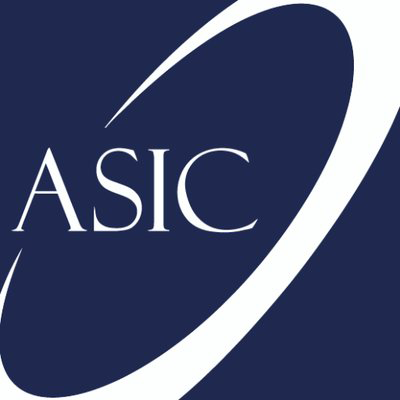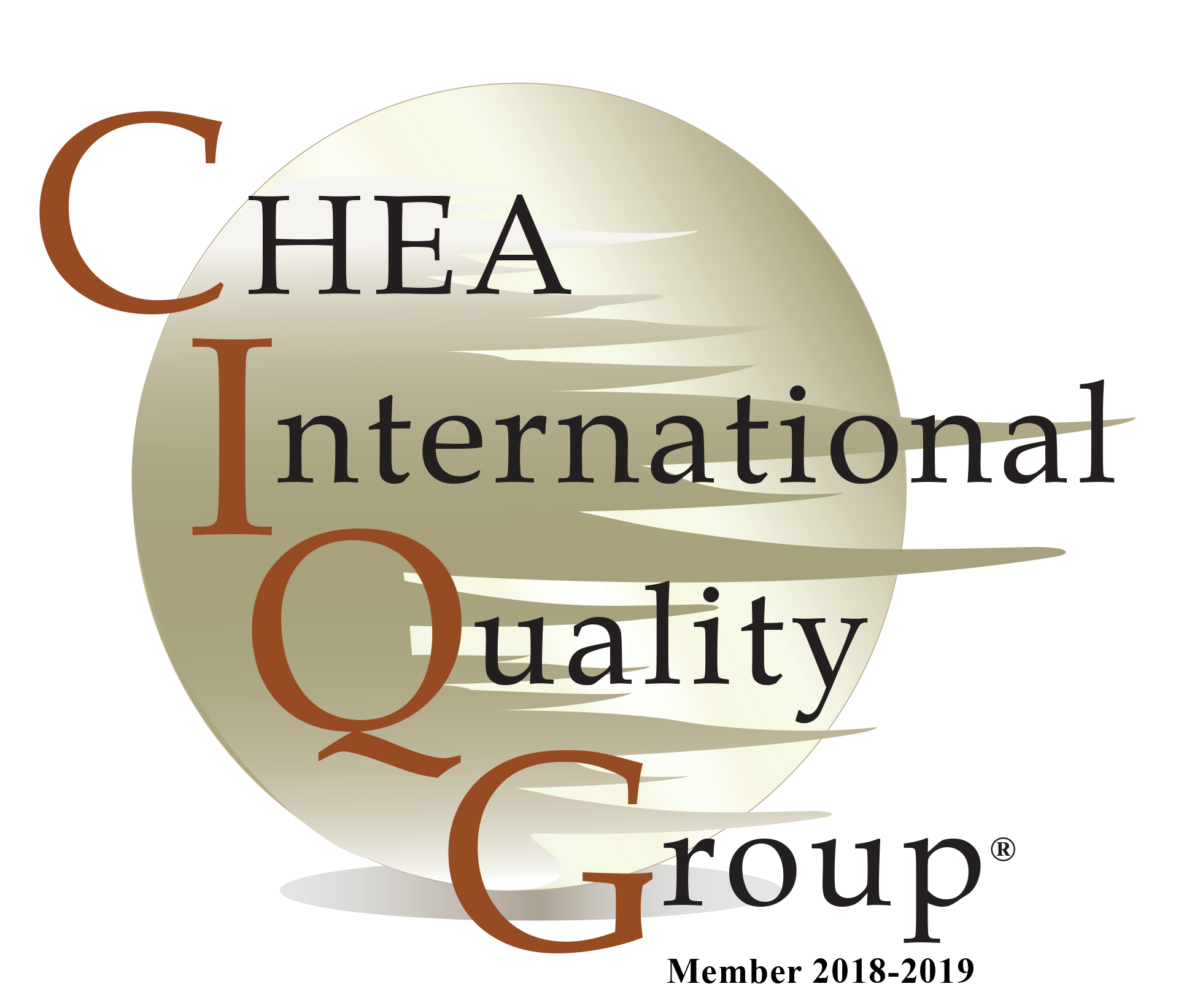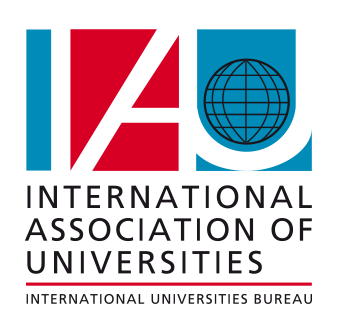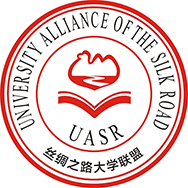Information for foreign students
We are delighted that you have been offered a place at TNU and we look forward to welcoming you.
By enrolling to TNU, you are introducing yourself to an excellent educational atmosphere and a great opportunity for graduating with a world class degree.
TNU appreciates and enjoys the cultural diversity brought by international students.
The aim of this booklet is to give you some practical advice and information to help you prepare for your arrival and for living and studying in TNU. We hope this information will help you plan in advance and make your move to Ukraine as smooth as possible.
We hope that you will thoroughly enjoy your time with us and get involved in all aspects of TNU life. If you have any questions or concerns about coming to study in Ukraine, please do contact us so that we can help you.
We look forward to meeting you at TNU!
With Best Wishes
Admissions Team
GENERAL INFORMATION
Capital: Kyiv
Official language: Ukrainian. Russian language is widely spoken, especially in eastern and southern parts of Ukraine. The Ukrainian language is mainly spoken in western and central parts of the country.
Independence: August, 24, 1991
Location: Central-Eastern Europe, part of the East-European plain, between 44’’20’ and 52’’20’ N and 22’’5’ and 41’’15’E. Ukraine is the second largest country in Eastern Europe. It borders on Russia, Belarus, Poland, Slovakia and Hungary, Romania, Moldova. It is washed by the Black Sea and the Sea of Azov in the south.
Area: 603,7 km²
Climate: moderately continental with cool winters and relatively warm summers. In the Carpathian Mountains the climate is mild, with warm winter and rainy summer. The Ukrainian climate has considerable fluctuation in weather conditions from year to year. Alongside very wet years there can be droughts, and alongside cold years there are warm years. Average winter temperature is from -8° to -12° C (from +17.6° F to +3° F). In the Southern regions average winter temperature is 0° C (+32° F). Average summer temperature is from +18° to +25° C (from +64.4° F to +77° F), although maximum temperature can be more than +35° C (+95° F).
Best time to visit Ukraine: late spring, summer, and early autumn.
Population: 45.4 million. 77.8% of the population are Ukrainians. Other significant groups have identified themselves as Russians (17.3%), Belarusians (0.6%), Moldovans (0.5%), Crimean Tatars (0.5%), Bulgarians (0.4%), Hungarians (0.3%), Romanians (0.3%), Poles (0.3%) and Jews (0.2%).
Religion: the Ukrainian Orthodox Church (the most common), the Ukrainian Greek Catholic Church, the Roman Catholic Church (mostly in the western regions), Jewish and Muslims community.
Currency: hryvnia (letter code UAH, digital code 980)
Time zone: GMT+2 (UTC+2). You should bear in mind that Ukraine observes Daylight Saving Time. Daylight Saving Time starts on the last Sunday in March and ends on the last Sunday in October. It is wise to keep this in mind if you are planning your arrival or departure on those days.
Internet top-level domain: ua
International phone code: 380
HISTORY:
The territory of Ukraine has been inhabited for at least 44,000 years. Prehistoric Ukraine was the site of Indo-European expansion and also occupied by the different tribes during the great migration of peoples. Ukraine enters history proper with the establishment of the powerful East Slavic state of Kievan Rus. It was the key centre of the medieval world, but disintegrated in the 12th century. By the middle of the 14th the territory was contested, rules and divided by a variety of powers, including Lithuania, Poland, the Ottoman Empire, Austro-Hungary and Russia. A Cossacks republic emerged and prospered during the 17th and 18th centures, but Ukraine’s territories remained divided. A chaotic period of warfare ensued after the Russian Revolution, but all Ukrainian lands were consolidated only into a Soviet republic in the 20th century. Ukraine become independent on August 24, 1991, after Verkhovna Rada (the parliament of Ukraine) adopted the Act of Independence and a subsequent referendum was held on December 1, 1991, in which more than 90% of the electorate expressed their support for the Act.
INTERNATIONAL RELATIONS:
International relations Ukraine’s foreign policy is focused on Euro-Atlantic integration. Ukraine is a member of different international organizations including the United Nations Organization (UNO), Council of Europe, Organization for Security and Cooperation in Europe (OSCE), WTO, IMF and World Bank and an affiliate member of the European Bank for Reconstruction and Development. It is a member of the Regional Body GUAM (Georgia, Ukraine, Azerbaijan and Moldova), and Organization of the Black Sea Economic Cooperation. In 2014 the Association Agreement, between Ukraine and European Union was signed.
PUBLIC HOLIDAYS IN UKRAINE
January 1 New Year’s Day
January 7 Orthodox Christmas
March 8 International Women’s Day
April 12 (movable) Orthodox Easter
Easter + 49 days Orthodox Pentecost
May 1, 2 Labour Day
May 9 Victory Day
June 28 Constitution Day
August 24 Independence Day
PRE-ARRIVAL INFORMATION
VISAS
Students from countries which require a visa or have signed an agreement on a visa-free period of up to 90 days (tourist, private and business travel) shall apply for a long stay visa (type D) to Ukraine, which allows you to stay in Ukraine longer than 90 days.
Citizens of countries with which Ukraine has signed a visa-free regime agreement (Georgia, Moldova, Belarus, Armenia, Azerbaijan, Uzbekistan, Russia) do not require a visa to Ukraine, but shall provide an original or photocopy of the “Invitation to study” when crossing the Ukrainian border to verify the purpose of their visit to Ukraine.
To obtain a long stay visa (type D), a prospective student shall submit a series of documents to the consulate or embassy of Ukraine in their respective country as indicated on the embassy’s website. Regardless of where you submit your documents, you will always be asked to include the original “Invitation to study”. We would like to stress that the documents from your previous education must be officially certified before submission to the consulate. This can be done one of two ways: legalised by the Ministry of Education and Science, Ministry of Foreign Affairs and the Embassy of Ukraine in your country or certified by Apostille stamp and legalized at the Embassy of Ukraine in your country. These documents must be officially recognized in Ukraine for a Ukrainian university to be able to issue your diploma certificate upon graduation.
All “Invitations to study” issued by universities undergo mandatory registration at the Ministry of Education and Science of Ukraine before being issued to applicants. Our Center performs such registrations on behalf of the Ministry and provides official confirmation of such registration (visa support) to the Consulate of Ukraine in respective countries. Consulates do not accept documents from international students without such registration and cannot therefore proceed with issuing student visas.
MEDICAL INSURANCE
Before arriving in Ukraine, you need to ensure that you have adequate health insurance coverage during your trip.
The Ukrainian parliament passed a law in 1997 requiring all visitors to Ukraine to obtain mandatory health insurance from the state joint-stock insurance company Ukrinmedstrach at their point of entry into Ukraine.
The Ministry of Foreign Affairs has advised the embassy that holders of official or diplomatic passports are exempt from this requirement. However, there have been cases where travelers with official passports have been required to buy the insurance. To date, the cost has not exceeded $40 per traveler.
According to the information from the Ministry of Foreign Affairs of Ukraine, the Ukrinmedstrach was “created for the purpose of developing a state program to ensure that foreign citizens receive high-quality emergency medical assistance in Ukraine”. In other words, the program, primarily, guarantees that any visitor to Ukraine will have continuing access to the public health system in emergency cases and, secondly, it ensures that the facilities rendering emergency care are compensated for their services.
This required insurance can be purchased after arrival but covers only the costs of basic medical care inside Ukraine; it does not cover medical evacuation. Public hospitals and clinics in Ukraine might refuse to treat you if you do not have this insurance. Private clinics do not require Ukrainian public health insurance, but can be as expensive.
The cost of medical insurance, according to information from Ukrainian authorities, does not depend on the term of validity, or type of, visa but on the length of a foreign traveller stay in Ukraine. The cost for the insurance is: from 1 to 5 days approx. $4, for 30 days $22, from 181 to 210 days – 334 $88, from 331 to 365 days – $100-200.
MEDICAL INSURANCE FOR FOREIGN CITIZENS: STAYS OF ONE YEAR…
As a new arriving student, if your study programme is longer than one year, you are entitled to the same health benefits as Ukrainian.
The application procedure can take some time, but you will be fully covered if you need medical help during the time it takes to process your application.
Please note that this medical insurance does not cover your journey to Ukraine or the time you spend in the country prior to applying for Medical of Local health insurance registration. Thus, to be fully covered for that period, you will need some form of travel insurance before arriving to Ukraine.
Foreigners are required by law to buy emergency medical insurance before entering Ukraine. The state doesn’t always accept insurance from foreign providers. The law actually requires all foreigners to buy emergency medical insurance from Ukraine’s state insurance company.
Medicine insurance, in Ukraine has reciprocal agreements for medical benefits with a number of countries. To find out whether your country has such an agreement, you should contact the social insurance office in your home country.
Students from countries with this type of agreement need only present their passport and a certificate from their national social insurance office when seeking medical help. For the reciprocal agreement to apply, the need for medical care must arise during (not prior to) your stay in Ukraine.
Students who are not covered by any of these agreements must arrange their own insurance coverage. Either purchase it in your home country, or else check with your student union. It may have a special agreement with an insurance company.
MEDICAL TREATMENT IN UKRAINE
If you need to consult a doctor (and you are covered, see above) you can either make an appointment with the doctor or go to the local health clinic.
It might be a good idea to have a thorough check-up at your dentist before leaving for Ukraine. Should you still need to consult a dentist here, go to your nearest public dental clinic. For urgent dental treatment, see the emergency dental clinic. Doctors speak good English.
VACCINATIONS
There are no vaccination requirements for any international traveller entering Ukraine. However, TNU may require a medical certificate as part of the application to its programmes.
TRIP PLANNING
BOOKING YOUR TICKETS
Purchasing airfare
It is the responsibility of each student to make his/her own travel arrangements. You may wish to have a travel agent help you with your travel plans. There are many different options for purchasing your tickets and it is important to choose the one which suits your needs best.
We recommend that you do not wait to the last minute for obtaining all of your travel documents!!
PREPARING YOUR FINANCES
Cash
Although it is more advantageous to convert money in Europe than it is at home, it is important to have enough money for the first 24 to 48 hours of your trip. You should plan on having approximately minimum of 100-200$ USD to be able to pay for any other issues that could arise when travelling.
When changing money abroad it is always best to go to a bank. Although there are change offices all over Kyiv, they charge a commission and their exchange rate is usually high. This rule also applies to hotels, airports and train stations, Where rates are usually higher than at a bank. To avoid losing money from transaction charges, it is best to change large sums of money at one time.
Credit cards
Credit cards are generally accepted all over Ukraine although some restaurants and budget hotels will only accept cash. Credit cards will sometimes be required when reserving hotel rooms or rental cars. Credit cards can also provide cash advances through ATM machines. Although the transaction fee is hefty (around $10 for the advance and 2-3% extra for foreign transactions), having the option available can prove to be a great relief in event of an emergency. In order to make cash advances with your credit card number, contact your credit card company to obtain a Personal Identification Number (PIN).
ATM and Debit Cards
ATM machines (Bankomat in Ukrainian) are quite common in Ukraine and are easy to find and use. Before leaving home check with your bank to make sure you have an international pin code and that your card is compatible with Europe’s systems.
The Debit Card
The Debit Card allows your cash card to also be used as a credit card. Instead of paying a monthly bill, the Debit card takes the money directly and immediately from your bank account. Although convenient, these cards can be extremely risky. If your card is stolen and used to charge, the money is NOT recoverable (up to a maximum stated by your bank) whereas a credit card company is insured and will not charge you for purchases made with your stolen card. If you have a Debit card and find it indispensable, be aware of the risks and exercise caution.
Note: For either Credit or Debit Cards, make sure to call into your bank before your departure to inform them you will be using your card outside of the country for the period of your travels. If you do not, you risk having a block placed on your account.
The most important thing to remember is never limit accessing your money to one option. It is absolutely essential to have a backup source of money readily available. If you rely on a bankcard alone and it is stolen, you will have no means get money. It may be a good idea to have a second bankcard issued which you can leave at home in case of emergency. Nevertheless, mailing new cards or wiring money takes time so it is important to have more than one way of getting cash.
PACKING GUIDE
What to bring to Ukraine?
- Your Invitation Letter.
- Your International Passport.
- Original or certified copies of your qualifications.
- Driver’s license (if any).
- Medical history or prescriptions required for ongoing medication.
- Personal computer (if preferred).
- Clothing: most students wear casual, comfortable clothing to university. In the warmer months between November and March (average temperatures 17-45 degrees), students generally wear light weight t-shirts, shorts and skirts. In the cooler months of June to August (average temperatures 5-20 degrees), people generally wear items like jeans and a waterproof jacket. Visit the weather page for more detailed weather information.
- Household equipment: most accommodation, except homestay, will not include cooking utensils, sheets, blankets, etc. All required products can be easily purchased from a wide variety of stores and secondhand household items are available at cheap prices.
What to Leave Behind?
Don’t bring anything you would hate to lose.
Leave at home:
- Valuable or expensive-looking jewelry.
- Irreplaceable family objects.
- all unnecessary credit cards.
- Social card, library cards, unneeded credit cards, and similar items you may routinely carry in your wallet.
Leave a copy of your itinerary with family or friends at home in case they need to contact you in an emergency.
PRE-DEPARTURE CHECKLIST
Remember: Pack smart and pack light!
- You will have to carry everything you pack. Consider how much you can realistically carry all by yourself. Contact the airline you will be flying with and inquire about baggage limitations. Ask about the allowed number of carry-on & checked bags, and their dimensions and weight limits. It’s also worthwhile to find out what the fees are for going over the weight limit. And most importantly DON’T WAIT UNTIL THE NIGHT BEFORE TO PACK!
- Spread out essential items, such as undergarments and a change of clothes throughout your pieces of luggage, especially your carry on. This is a good idea should the airline loose one of your bags.
- We recommend packing clothes that do not require dry cleaning or special care.
- Pack the change of seasons. Consider if you want to carry a heavy coat on the plane or purchase one once you’re in Ukraine. Dressing in layers during the winter months is also a good idea.
- Pack comfortable walking shoes. Most of your transportation will be provided by your own two feet, treat them well!
- Consider packing one or two semi-dressy outfits. There may be occasions when you may want to wear something nicer than your blue jeans.
- Pack enough personal hygiene items to get you through the 1st week. Items such as shampoo, conditioner, toothpaste etc. You can restock once you know your way around.
- Pack enough prescription medicines to get you through your travels. They cannot be mailed overseas and will get stopped in customs!
- Be aware of the culture in which you are going to be living. Be respective of their customs. Wearing flashy or revealing clothing can draw unwanted attention and may be considered disrespectful.
- Have something familiar in otherwise unfamiliar surroundings. A few pictures of family, friends, or your pet may help you in those moments of homesickness. Also, try keeping a travel journal even if it’s the first time you’ve ever done this. Students always enjoy reading through entries about events, people and places that they may have forgotten about.
- And the most important thing – EMPTY SPACE! Remember that you will have more stuff when you come back home!
Copies
- Make at least 3 copies of your Passport. Give one to your parents/guardian/spouse and keep 2 copies with you while abroad. Keep copies in a secure and separate place from your passport.
- Make at least 2 copies of the front and back of each credit card you will be taking. Give one copy to your parents/guardian/spouse and keep one copy with you while abroad. Again your copy should be kept in a secure & separate place from your credit cards.
- Do the same with any traveler’s checks and debit cards you may be taking with you while abroad.
- Make at least 2 copies of your travel itinerary. Once more, leave one copy with your parents/guardian/spouse and carry the other with you in a separate place other than the original.
Money
Make sure your credit and debit cards are accepted in Ukraine. Usually if your card has a Cirrus logo you’re fine. But always check with your financial institution!
- Contact your company before leaving to let them know you will be using your card overseas. If you don’t you may risk having a hold placed on your account.
Identify yourself
- Carry your passport and photo I.D. in a place that is secure, but easily accessible by you. You will have to present them at various points in your trip.
- Make sure your I.D. has a photo, proof of age and maybe even student status (this is not necessary, but a good idea for obtaining discounts).
- Carry a written doctor’s prescription for each medication you travel with, and make sure all medication is in the original containers. If possible try to get enough of your medication for the duration of your stay before you depart.
- Carry a proof of insurance with you. Again, make sure to carry it in a secure place.
It’s in the bag!
- If you will be using a purse or bag (for the gentlemen), remember to keep it with you at all times. Never leave your belongings unattended even for a moment! Tuck it firmly under your arm or if it has a long strap, wear it across your chest rather than dangling from your shoulder. You might consider carrying a money belt, which is worn under clothing, to carry your money and Passport.
- Carry the address and phone number to “Study in Ukraine” with you at all times. Remember to leave this contact information with your parents/spouse/guardian.
- You might consider purchasing a guidebook about Ukraine at your local bookstore. It’s always a great idea to do research about your destination to learn about the culture, travel, and much more. During orientation you will get an extensive Student Handbook outlining places to shop, eat, buy groceries and lots of great information that will be handy for your time in Ukraine.
ADDITIONAL INFORMATION
CURRENCY
Here is some important information:
The National currency of Ukraine is Hryvnia (UAH).
You can easily change foreign currency in banks or kiosks available at the international airport. The currency rate at the airport is the same as in other places.
Any sort of payment for purchasing anything or services is done in Hryvnias. Though, some companies may accept payments in US dollars.
You can avail the credit card facility too. They can be utilized in most of the shops, hotels, transport companies, clubs and restaurants. In cities the network of exchange machines is well developed including the most popular banks.
Here you can save money both in foreign currency and Ukrainian Hryvnia. You will find Banks in every region of the country. Therefore you can easily use Western Union or any other preferred money transfer system.
TRANSPORT FACILITIES
The international airport of Borispol is just 36KM from Kyiv. It is the air gate of the country. You will have to avail a taxi, bus or any shuttle service to reach Kyiv. You can also order our pick up service.
Besides Borispol airport you can take international flights from Kyiv Zhuliany Airport, Odessa, Lviv, Kherson, and Dnepropetrovsk. There are also international railway connections with several countries. International bus routes are available from EU countries.
Ukraine has a very well developed transportation system. You will have no problem to travel to any part of the country. You can move all over the country by bus or train.
Note: The fare for a distance of 500 km will be about US$12-20.
You can buy advance train tickets at the railway station or from the city counters. On the day of travel a ticket can be availed only from the station.
For air travel within the country you can purchase tickets from the local counters.
Note: Flight cost for a distance of 500 km will be about US$250.
For local transport you will get buses, trolleybuses, trams and taxis. You will have to buy tickets from the conductor or at yellow kiosks at stops.
Note: The fare will be about US$0.30 for bus and trams. The fare for taxis is $US2 + US$0.40 per 1 km.
In Kyiv, Kharkov, Dnepropetrovsk you can avail the underground transit system. You will have to buy tickets at the entrance. The ticket costs US$0.12 (without time and destination limits!).
During summer you may enjoy water transport, which will be quite comfortable.
ELECTRICITY AND FOOD
Electricity
The standard electrical voltage throughout Ukraine is 220 volts.
Some outlets operate on 127 volts, but these are very rare. If you are bringing electrical appliances along with you, then you will need a converter and an European plug adapter.
ACCOMMODATION IN UKRAINE
Our students can choose from among the following types of accommodations:
The University Campus
The most popular and economic way of living is in the university hostel.
Private Apartment
This is the best option for those who want to be completely autonomous and free to host friends and family. Most apartments are furnished and equipped with kitchen utensils.
Family-stay
Living with an Italian family is a good way to practice the language and experience the Ukrainian way of life. All families are used to hosting foreign students and willing to share with you their daily routines and traditions.
Other Solutions
It is also possible to reserve accommodations in pensions, hotels, residence or religious institutions.
STUDENT LIFE
Student Life, that's the living and learning that takes place outside of the classroom and it's a big part of your college experience.
It includes where you live, how you make connections, and that hard-to-define essence, or culture that separates Ukraine from other countries. Ukraine has its own ambience.
The friendly attitude of your professors and peers, and the companionship you feel when people call you by name. It takes a whole community to graduate a student.
CULTURE
In Ukraine you can visit theatres, exhibitions and cinemas at a very reasonable price, most with a special discount for students. The traditional Ukrainian opera on offer includes “Natalka Poltavka” and “Zaporozhets za Dunayem”, which have exciting and touching stories full of authentic Ukrainian spirit. Additionally, you can watch folk dances and listen to melodious songs at the theatre.
FESTIVALS
In recent years, a variety of festivals have emerged in major Ukrainian cities. Among the most popular are international jazz, open-air, street food and various summer festivals.
HOLIDAYS
Ukrainian traditional holidays are widely celebrated with the whole family. People like visiting fairs and concerts during Maslyana (the week before the Great Lent), Christmas and Ivana Kupala (Midsummer Day). At these events, you can enjoy traditional Ukrainian cuisine and participate in year-old traditions that will help you form a deeper understanding of Ukrainian culture.
LEISURE
Ukrainians respect all cultures and denominations, allowing foreign students to have days off from university to celebrate their own traditional holidays. Besides, this will give you an opportunity to show off your own culture. TNU hosts various projects within the global cultural dialogue, where international students are able to share their traditions with fellow students.
SOCIAL LIFE
Being a student in Ukraine means having an active social life, full of unforgettable activities, which will obviously become precious memories for the rest of your life. TNU has student unions which were formed to organize and enrich students’ social and academic lives.
There are numerous different activities, contests, and cultural clubs on offer at local student communities. Brainstorming competitions are popular in Ukraine and students also take part in scientific conferences to present their research.
SPORT
In Ukraine, you can find any sport you like, with big university campuses having their own gyms and play yards. The most popular team sports are football, volleyball, basketball, soccer and cricket. Other sports on offer to students include tennis, badminton and chess. There are sports tournaments constantly being held all over Ukraine.
Sports culture in Ukraine is rapidly developing. In every city you can find a gym for a reasonable price not far from your place and don’t forget to ask about student discounts!
TOURISM
Ukraine has fertile soil and beautiful nature, which has always been a great treasure for conquerors. Every region of the country has it’s unique natural and man-made attractions and tourist spots. You can find numerous museums, nature parks and reserves you surely will be impressed with.
EVENTS
The largest cities of Ukraine are Kyiv, Lviv, Odessa and Kharkiv. Graceful architecture, cozy cafes and restaurants, and a variety of cultural facilities make Ukraine a fascinating destination.
There is a small city in the Kyiv province called Pereyaslav, which is a known as a “living museum” and is one of the biggest history and ethnography reserves in Ukraine. There are over 20 different museums, and the city hosts various exhibitions and ethnic festivals. Western Ukraine has a charming European spirit you should experience: ancient churches, old castles, waterfalls and breathtaking mountains. Carpathian cities like Bukovel, Slavske and Pylypets are well known skiing resorts in the area. The Shatsk lakes in Volyn are one of the biggest in eastern Europe. The coastline on the Black Sea is a popular summer destination for vacationers, the river trip from Kyiv to the Black Sea coast promises remarkable sights.
Appendix 1
COST OF LIVING






